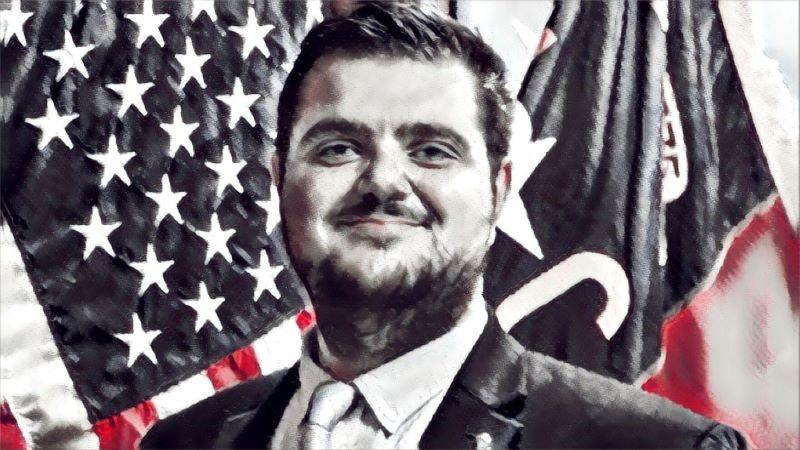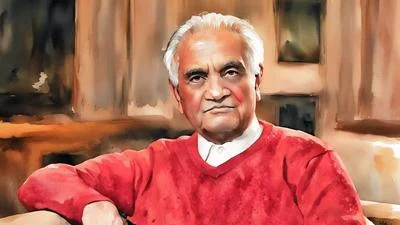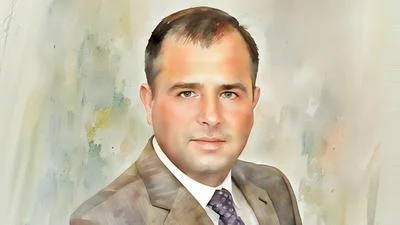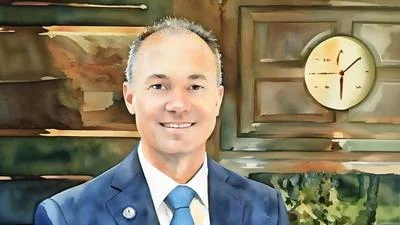This transcript has been edited for clarity and length. Helder Toste is the government affairs liaison at the Libre Initiative. He is a first generation American.
Federal Newswire: What is the Libre Initiative?
Toste: We help break down barriers for Latinos in the United States to be able to be beneficiaries. We predominantly lobby on economic issues, immigration, border security, and most importantly these days, health care, which is a hot topic as we go into 2025 and a big reform window that's going to open up for the country as a whole.
Federal Newswire: You are advocating for a ‘personal option’ in healthcare–how does it relate to telehealth?
Toste: Under the personal option patients can work with their doctors to build health care for the individual that is more affordable, more dependable, and more transparent–especially when it comes to pricing–and is hassle free. The way we're looking at it is, how do we get the government out of the room to make sure that you can actually see your doctor and receive the care that's going to be best for you? Not only remove barriers, but also lower the cost to make sure that you're taking care of your family in the best way that works for you. Health care, at the end of the day, is deeply personal, and everyone comes is different. When it comes to health care, we want to make sure patients are empowered.
Federal Newswire: How has telehealth impacted your communities?
Toste: Before the pandemic, telehealth was ultra-regulated. It was hard to access. Even if you did have it, it was unreliable. Providers didn't really want to lean into it. Only about 5 million people nationally were using it before the pandemic, and the new number as of this past year is over 60 million Americans. As the pandemic hit the government said, ‘okay, we have to make sure people don't crowd into urgent care and get each other sick. We need to be proactive, so let's do preventative health.’ As telehealth kept expanding and more people could use it, we had a whole group of people that could never really have access, especially in rural areas, but also underserved urban communities. So, the reason this comes together in a very unique way is that we gave people more options to use telehealth, across Medicare beneficiaries, Medicaid, and then those that had private insurance plans. When you gave people the option, what did 60 million Americans say? ‘Yeah, I absolutely want to use telehealth.’ The reason for that also, especially now, is the cost of living has gone through the roof. Over 50% of the 50 million people living in rural America have to drive more than 30 minutes to get to a clinic or a hospital. Gas prices in California right now are averaging $6. If you're in a rural California county, it's not just about getting to the doctor and then having to pay the co-pay, it's how do I get there? Flexibility is crucial for working class people, rural people, and people who sometimes have extra barriers to see a doctor. Now we have a system that's trying to not only keep up, but to deal with the fact that all these provisions are going to expire next year. We're at a huge inflection point for this particular aspect of health care.
Federal Newswire: What are the barriers to continuing telehealth?
Toste: I'll give kudos where it's deserved. Since 2020, the House has passed bills to address this permanently. There is a bipartisan group of Republicans and Democrats, and a bill got over 400 votes the last time it left the House. The issue has been passing the hurdle in the Senate. You need 66 votes there. We had really hard-working members of Congress, like Democratic Congresswoman Matsui and Democratic Congressman Mike Thompson. They were partnering with Congressman Schweikert from Arizona, who represents a more suburban area. They were all working together, but we didn't have a leader to push it through. Senator Schatz, who's from Hawaii, has already pulled together a bill that covers everything–along with 66 senators. The House committees have unanimously passed tons of these provisions out already. There are two things needed before it ends up on the president's desk. First is a floor vote in the House. Then, we're going to need Chuck Schumer to give us time on the Senate floor to have a vote on this package. That's where we come into the picture. As citizens, we have to hold our government accountable to our needs.
Federal Newswire: Why is this so important for you personally?
Toste: I grew up in a household where we didn't speak English, and my mom and dad worked really hard on a dairy farm in central California. My mom has heart issues and other health issues. Even at a young age, I was in the doctor's office with my mom translating, trying to translate really complicated and difficult medical terms into every day, understandable Spanish. As a 12-year-old, you're not really [equipped to] support your mom or your dad, through that process. That's why it's personal. There are 25 million Americans in this country who have limited English and need good health care. But really for me, it's about my mom. I live in D.C.; she lives in North Carolina. Is she getting the care that she needs? I think this topic is personal for so many people. It's also about solving our country's mental health crisis. Care has become harder to reach–we have a huge physician shortage in this country. Elderly people who already deal with issues of isolation, don't have the care they need. A lot of folks who have home care–this may be the only way they see a person that actually can help them.
Federal Newswire: Who are the best advocates for telehealth?
Toste: You are the best advocate for your health care. It's not the government. It's not even the doctor, because a doctor's only as equipped as you are to meet your needs. This is a personal thing. You have to take control of your own health care. I know it's a headache, and it's not a fun task, but it's crucial that you, the patient, are in charge, and that you, the patient, are driving your outcomes. We live in a country where we have the best medical outcomes for people anywhere in the world. But, if you don't advocate for yourself through that process, you're not able to get the care you need. That is fundamentally what it's about. It's about you, the patient, you, the individual, you, the person that's part of a family and of a community. Let’s deliver results that all Americans are going to benefit from.









